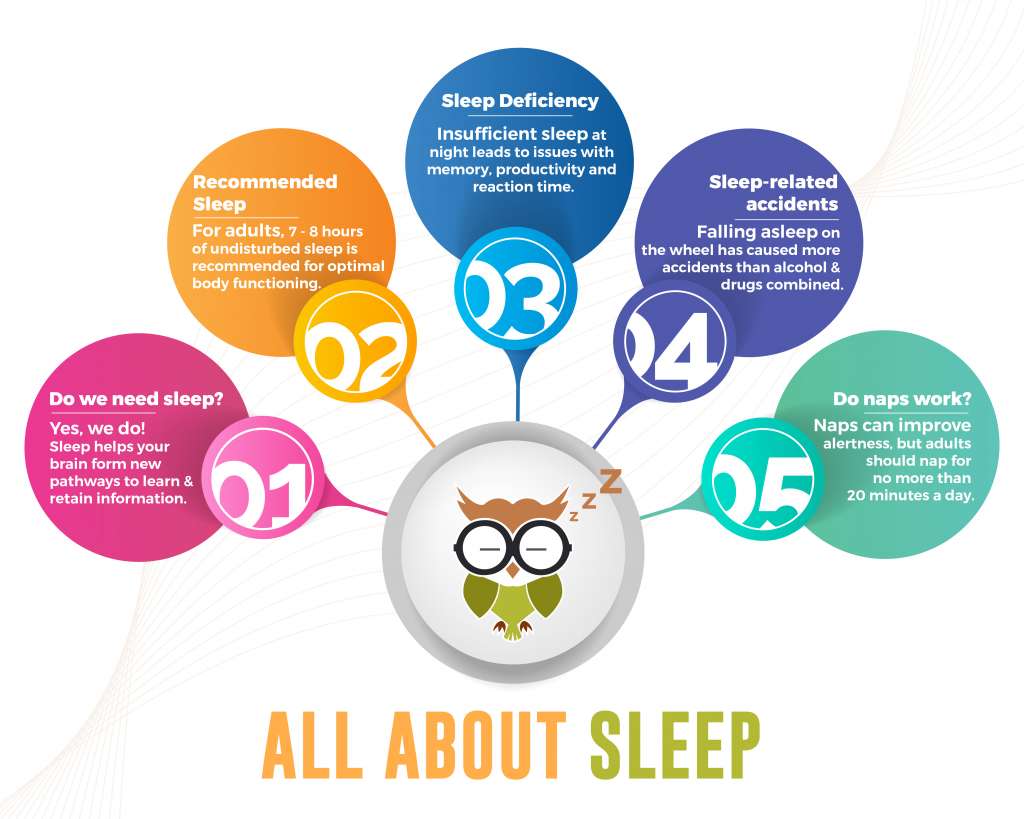All About Sleep
Sleep is for the weak? No, sleep is for the species!
| “If sleep does not serve an absolutely vital function, then it is the biggest mistake the evolutionary process has ever made” – Dr Allan Rechtschaffen |
Have you ever thought about why we need to sleep? Guess what…
Nobody knows!
From an evolutionary standpoint, sleep is rather confusing. When the body is at rest, it forsakes all the aspects that constitute humanity. One can’t gather sustenance, socialise, mate, protect offspring and worst of all, sleep leaves you vulnerable to predation. And yet, lack of sleep causes serious physiological and psychological damage to our bodies. Let’s take a gander into the world of zzzs…

Types of Sleep
The recommended daily amount of sleep is 7 – 8 hours for adults. However, this comes with a disclaimer. The sleep referred to here includes total sleep and type of sleep, both are required for optimal body functioning. Over and above this, it’s ideal if one sleeps at the time when the body is ready to sleep and not otherwise.
If you were a biology student, I’m sure you’ll remember hearing about REM sleep in school. REM or Random Eye Movement sleep is usually when you get dreams and/or nightmares. Non-REM sleep is commonly known as deep or slow wave sleep.
| Circadian Rhythms: We all have an internal body clock which controls when we wake and sleep, which usually follows a 24-hour repetitive pattern. This circadian rhythm affects the working of every single cell, tissue and organ of our bodies! |
Off the rhythm
It’s not just dancers that need to maintain a rhythm, our body mechanisms need to as well! When there is an alteration in your circadian rhythm, everything feels ‘off’. Consecutive shifts from our rhythms, whether due to poor or disturbed sleep or lack of sleep entirely, leads to sleep deficiency and ultimately, sleep deprivation.
I’m so sleepy…
An oft-spoken phrase, isn’t it? Sleep deficiency has become the new norm, in fact, it’s begotten the term ‘sleep epidemic’. An occasional night awake is expected, but several nights up late binge-watching shows, staring at the ceiling or simply being unable to sleep? It’s not optimal in the slightest.
| Microsleeping: Those brief moments of sleep that happen while you’re still awake? If you’ve experienced this, you’ve been microsleeping. A symptom of sleep deficiency, microsleep can’t be controlled and often happens without your awareness. |
Insufficient sleep on a regular basis interferes with every aspect of our lives: work, school, driving and even social situations. Retention and reaction capabilities are hindered. Gauging other’s emotions is tough when you haven’t slept enough, and you will find yourself frustrated and anxious when socialising.
All this and more is why we should prioritize sufficient and appropriate sleep.
But, how?
Creating a sleep routine is a requisite for sustainable balance in life. Start small. And no, we’re not recommending you count 100 sheep a night, then 200, and so forth. Find a rhythm that works for you! Whether it’s keeping a sleep diary, setting reminders to get ready for bed, or even asking your significant other to wake you up (a parent would be more reliable), make sure you maintain that routine.
The more consistent you are with your routine, the sooner you’ll see results in your day-to-day life. You’ll notice you’re more refreshed in the mornings (no more cranky monday blues), improved concentration at school and work, and a drastic reduction in your midday naps! Do comment below on what helps you sleep, we’d love to hear from you.
See you on the flip side,
![]()



